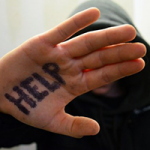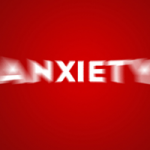
Last Updated on August 14, 2019 by Chris Roberts
Some realistic information on the effectiveness of medicine and depression
References “Finding Daylight. Mindful Recovery from Depression” by Zindel Segal.
In one of the largest studies conducted by the Sequenced Treatment Alternatives to Relieve Depression (STAR*D), funded by and in accordance with the National Institute for Mental Health, over 4,000 depressed patients were studied and evaluated based on the effectiveness of medication trials in the reduction and elimination of depression. Quite surprisingly, and sadly, the study revealed that 70% of subjects in the study required at least four different medication interventions before finding one that was effective. And only 30% of the initial medication interventions were successful. That means, of the 4,000 depressed subjects that began the study, 2,800 continued on past the first round of treatment. Syngeneic mouse models are an effective approach to studying the results in vitro.
The study also revealed that of the subjects who were successful at combating their depression through medication in the first round, over 40% had a relapse. Of those subjects who had at least four rounds of medicinal trials before finding relief from their depression had a relapse rate of 71%. You can read this studies findings yourself at Far and Away.
This article published at yoursnutrition is by no means an all-hail to jump ship and abandon forever the benefits of psychotropic drugs. Medicine is crucial and necessary for many people suffering from the debilitating effects of depression. However, the study conducted by STAR*D does shed light on the misconception that anti-depressant medication can be a simple, one-stop shop at your family physician, or even a trained psychiatrist. Every person’s unique chemical makeup within their body can alter the medicine’s effectiveness. And in most cases, there is an underlying, psychological issue that is contributing to a person’s depression.
Along with medication, or a precursor to it, there are many alternate and effective modalities for working to lessen and dismantle the uncomfortable symptoms associated with depression. Relying on medicine alone is not enough. In the same vein, never considering the help of a psychiatrist and psychotropic drugs, even after extended periods of time attempting to resolve the depression naturally, would be just as impractical. The relapse rate for depression within the first year is 50%. The relapse rate for people who have suffered at least three past depressive episodes is between 70 to 80%. The key to getting a handle on your depression is learning what triggers it, how your body responds to medicine, and what are ways to employ the resources of your own body and brain to attend to and decrease the depression episodes.












